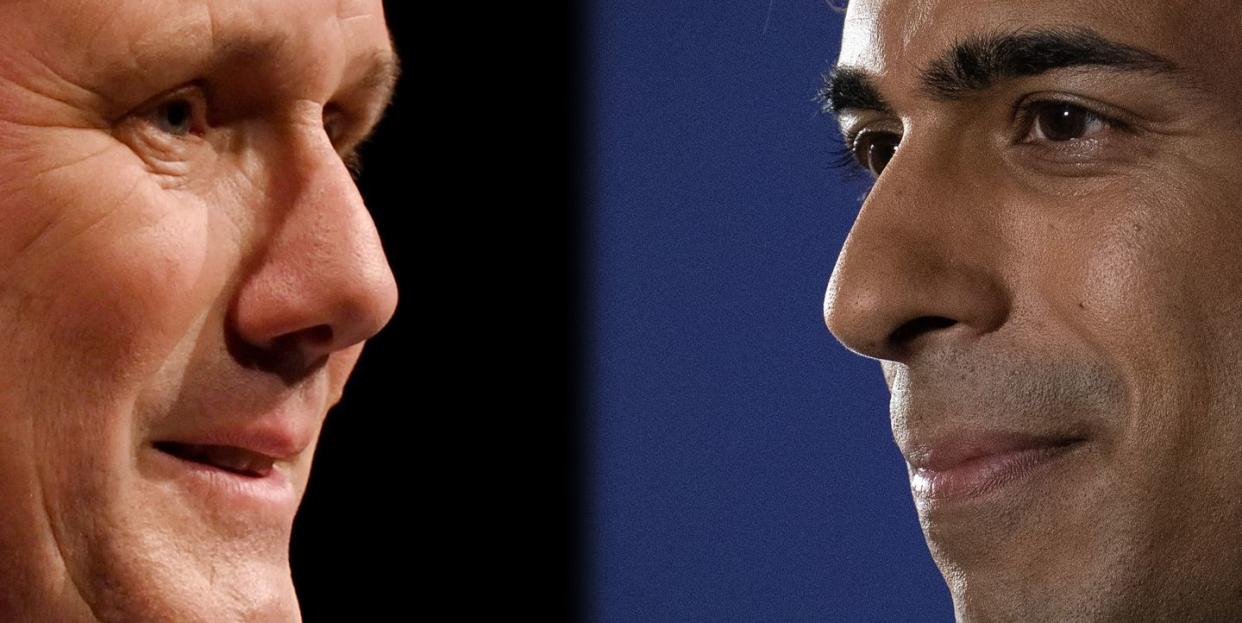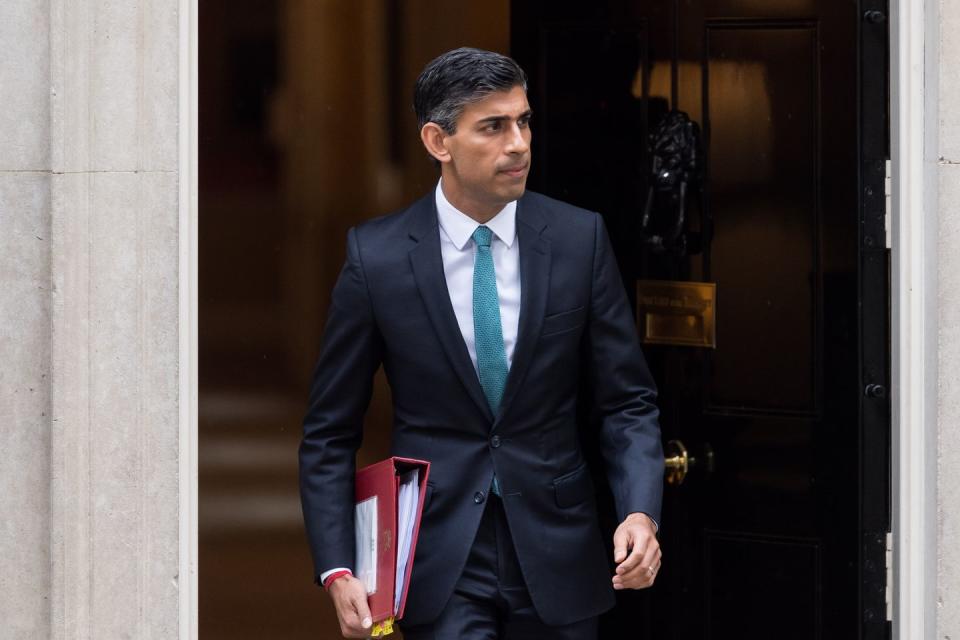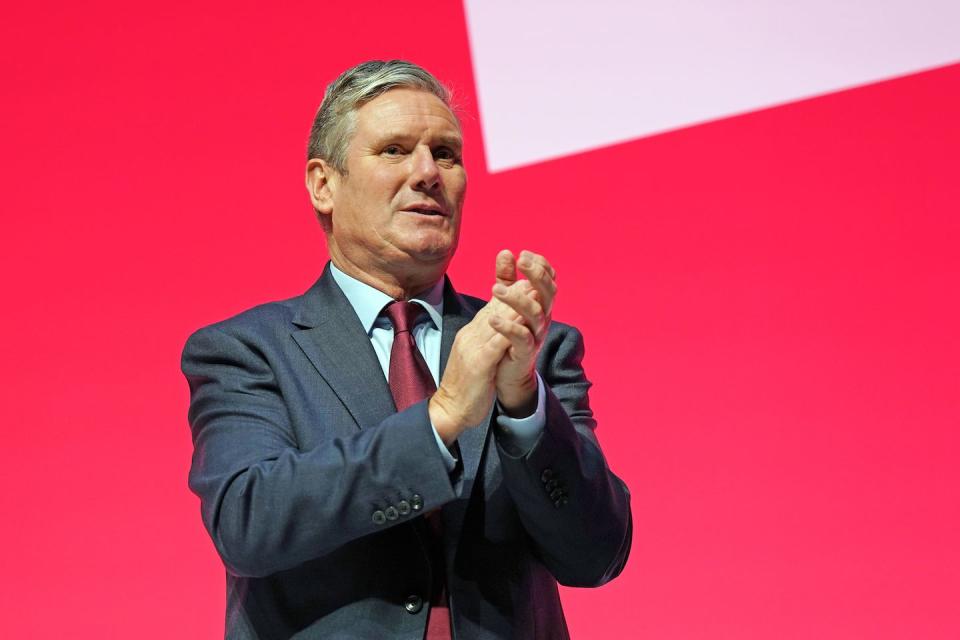The General Election Has Been Called - Here's A Super Simple Recap Explaining Everything You Need To Know

Prime Minister Rishi Sunak has announced that the UK's next general election will take place on July 4, following a cabinet meeting on Wednesday afternoon.
In January, Sunak said his 'working assumption' was that we would go to the polls ‘in the second half’ of 2024, but rumours led many to believe the election would be called sooner than expected.
The Guardian reports that Foreign Secretary David Cameron was forced to cut a trip to Albania short so he would be back in time to London for the cabinet meeting. Cameron was schedule to meet the Albanian prime minister, Edi Rama, and announce a partnership to train Albanian judges. Defence Seceretary Grant Shapps was also forced to delay a visit to Lithuania.
Following Sunak's announcement, the Conservative party and its opponents will now start a six-week campaign, which would end on July 4.
The last July UK general election took place in 1945, which saw Labour gain 239 seats, and turn the page on Winston Churchill's Conservative government, which had seen it through the majority of WWII (1940-1945).
In the lead up to the 2024 general election, here's a quick recap of everything you need to know:
How does Rishi Sunak call a general election?
The Prime Minister must formally asks the King to ‘dissolve’ Parliament - the technical term for closing Parliament ahead of an election – which thereafter involves MPs losing their status and campaigning for re-election if they wish to carry on in their former positions.
FIND OUT MORE ON ELLE COLLECTIVE
When Parliament is dissolved, the Government immediately enters a pre-election period – once known as ‘purdah’ – which restricts ministerial and departmental activity during parties' campaigns.

After winning the 2019 election, the Conservatives restored the prime minister’s ability to call an election, after control was previously bestowed to the House of Commons in 2011.
When is the next general election?
The next general election will take place on July 4.
The BBC reports that general elections typically take place on a Thursday (the last time this wasn’t the case was on Tuesday, October 27, 1931) , and the next one must be held before January 28, 2025.
The latest a Parliament can be dissolved for a general election is on the fifth anniversary of the day it first met, which this year means December 17 2024.
What happens during the general election?
The UK is made up of 650 areas, otherwise known as constituencies, which elect an MP to represent local residents in the House of Commons. Most candidates represent a political party, eg Labour or Liberal Democrats, but it’s also possible to stand as an independent, too.
On the election day, voters (over the age of 18) in each constituency vote for their preferred candidate at a nearby polling station. They can also vote by post if they so wish.
To vote, one must be:
a British citizen, a qualifying Commonwealth citizen or a Republic of Ireland citizen with a UK address
not legally excluded from voting
a UK citizen living abroad who has registered to vote in the constituency where they were previously on the electoral roll
Under the ‘first past the post’ system, the candidate who receives the most votes becomes the MP for their area.
Once the votes are counted, the King asks the leader of the political party with the most MPs to become prime minister and to form a government.

If no party ends up with a majority of MPs in the House of Commons (ie lacking overall control), the result is what's known as a hung Parliament, and the largest party can decide to form a coalition government with another party, or work as a minority government and rely on other political parties to pass laws.
Former PM Theresa May’s Conservative Party formed a minority government, with 317 seats, on June 9 2017. Meanwhile, in 2010, David Cameron became Prime Minister but also formed a coalition government between the Conservative Party and Nick Clegg’s Liberal Democrats.
When did Rishi Sunak become prime minister?
Sunak became prime minister on October 15 2022 when he succeeded Liz Truss.
In March 2024, he said the general election wouldn’t be held alongside the May 2 local elections. Days later, Chancellor Jeremy Hunt suggested that the poll was scheduled for October.
What are the polls currently saying?
The BBC reports that the Conservative Party average has 'edged down further and they're now at their lowest level' on the publication's tracker since October 2022 when Liz Truss was PM. 'The Labour lead over the Conservatives is almost at its biggest this year,' it added.
We will continue to update this article as more information comes in.
ELLE Collective is a new community of fashion, beauty and culture lovers. For access to exclusive content, events, inspiring advice from our Editors and industry experts, as well the opportunity to meet designers, thought-leaders and stylists, become a member today HERE.
You Might Also Like


